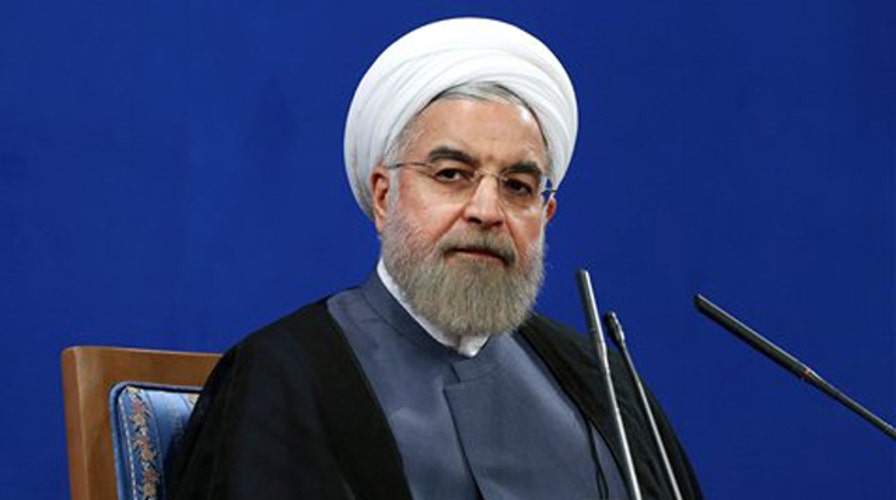Iran votes to ban inspectors with nuke deal deadline looming
Parliament opposes inspections of government military sites
Iran's parliament voted Sunday to oppose the inspections of government military sites as part of a pending, multi-nation agreement to curb the country’ nuclear program -- potentially complicating a final deal ahead of a June 30 deadline.
A State Department official told Fox News that the agency has seen reports about the parliament’s preliminary legislative steps to make its voice heard about the nuclear talks and any final deal.
However, the official said the United States will allow Iranians to manage their own process and reiterated the world powers’ position remains that any final deal must include adequate access and transparency to the country’s nuclear-related facilities.
“We won’t agree to a deal without that,” the official also said. “We expect that there will be many voices and opinions on the difficult issues as we work towards a final deal. … But our team is focused on what is happening in the negotiating room.”
The bill would allow for international inspections of Iranian nuclear sites but forbid inspections of military facilities. And it demands the complete lifting of all sanctions against Iran as part of any final nuclear accord.
Negotiators from Iran and the six-nation group -- the U.S., Britain, France, Russia, China and Germany – are negotiating right now in Vienna ahead of their self-imposed June 30 deadline. The talks are focused on reaching a final accord that curbs Iran's nuclear program in return for the lifting of economic sanctions. They agreed in April to the framework of a final deal.
The six countries think Iran is using its uranium-enrichment program to create a nuclear weapon, an assumption Tehran denies.
The bill states in part: "The International Atomic Energy Agency, within the framework of the safeguard agreement, is allowed to carry out conventional inspections of nuclear sites."
However, it concludes that "access to military, security and sensitive non-nuclear sites, as well as documents and scientists, is forbidden."
It also would require Iran's foreign minister to report to parliament every six months on the process of implementing the accord.
Iran's nuclear negotiators say they already have agreed to grant United Nations inspectors "managed access" to military sites under strict control and specific circumstances. That right includes allowing inspectors to take environmental samples around military sites.
But Iranian officials, including Ayatollah Ali Khameni, have strongly rejected the idea of Iranian scientists being interviewed.
The Associated Press contributed to this report.

